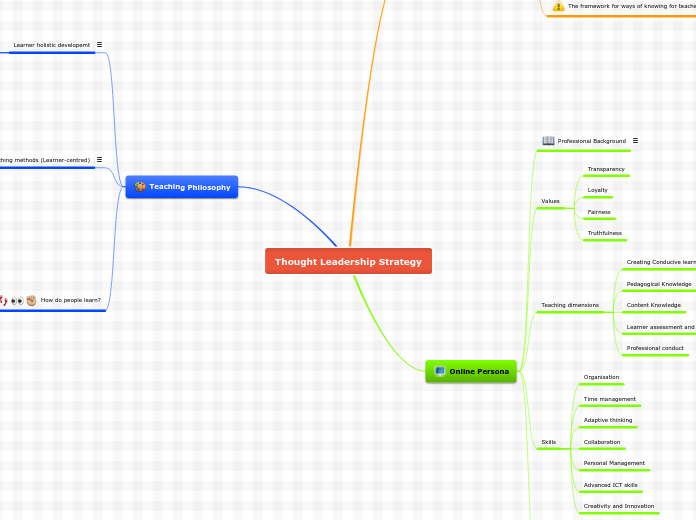Thought Leadership Strategy
Education Knowledge
Knowledge Types
Factual Knowledge -Knowledge that
Practical Knowledge - Knowledge how
Knowledge of things- Knowledge what
The framework for ways of knowing for teachers
• Empirical knowledge
• Ethical knowledge
• Personal knowledge
• Aesthetic knowledge
• Emancipatory knowledge
Online Persona
Professional Background
Values
Transparency
Loyalty
Fairness
Truthfulness
Teaching dimensions
Creating Conducive learning space
Pedagogical Knowledge
Content Knowledge
Learner assessment and achievement
Professional conduct
Skills
Organisation
Time management
Adaptive thinking
Collaboration
Personal Management
Advanced ICT skills
Creativity and Innovation
Tools
Research gate
Teaching Philosophy
Learner holistic developemt
Intellectual aspects
Emotional aspects
Physical aspects
Social aspects
Teaching methods (Learner-centred)
Cooperative learning
Digital technology
Experiments
Inquiry based learning
problem based learning
Gamification
How do people learn?
What is learning?
experience
Doing
Progressive Learning theories
Constructivism
Piagent
Vygosky
Behaviourism
Skinner
